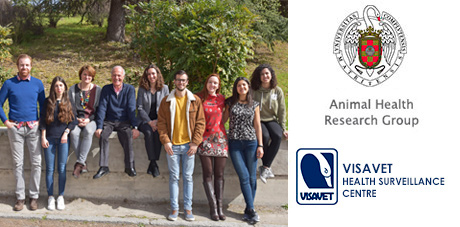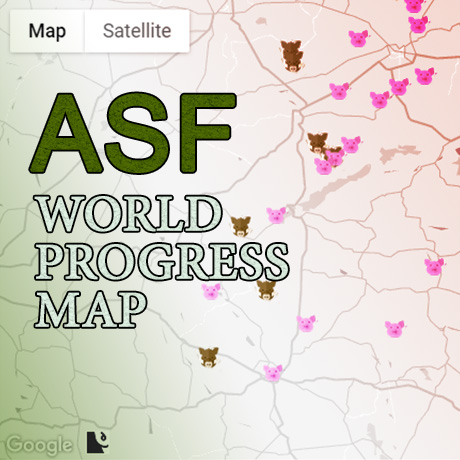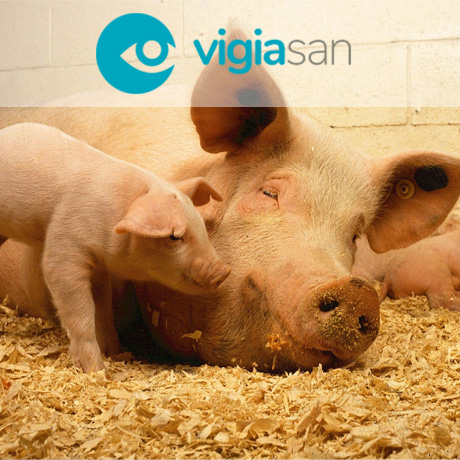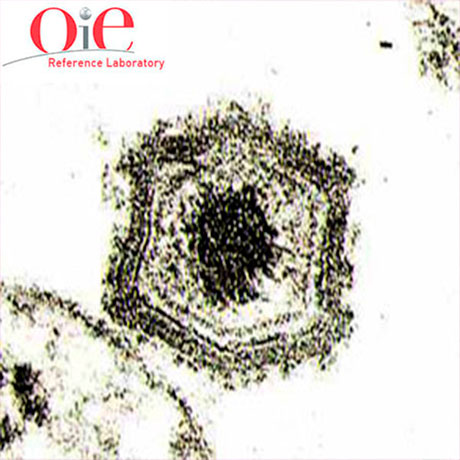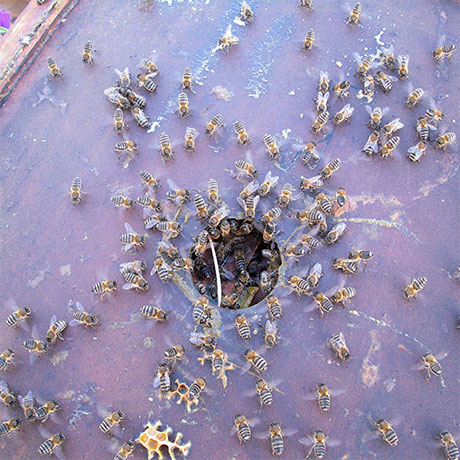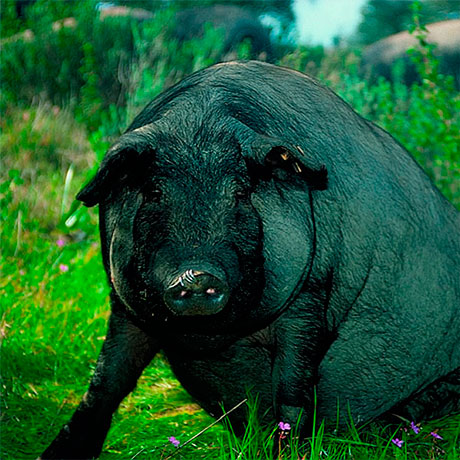Molecular detection of herpesvirus in a skin lesion of a humpback whale (Megaptera novaeangliae) from the Western Mediterranean Sea.
New open access article in the European Journal of Wildlife Research.
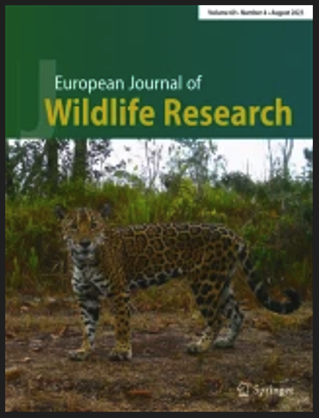 Abstract: Herpesvirus has the potential to infect a wide variety of animal species. In cetaceans, Alpha- and/or Gammaherpesvirinae have been identified in eight families of odontocetes, and one family of mysticetes. In May 2022, an adult humpback whale (Megaptera novaeangliae) was found stranded in Valencia, Spain. The whale was emaciated, in poor body condition, with multiple lacerations on the dorsal fin and a high number of epibionts of the Cyamidae family, known as whale lice. The individual had been previously released from a ghost net entanglement 5 days before becoming stranded. In a closer examination, various skin lesions were observed, including chronic, proliferative, and erosive dermatitis and a large ulcer extending to the deep dermis. As part of the infectious disease surveillance programme, molecular testing was performed on skin samples for herpesvirus, cetacean morbillivirus, and poxvirus. A positive result for herpesvirus was obtained from one of the skin lesions. The sequence was found to belong to the Alphaherpesvirinae subfamily, and it was closely related to alphaherpesvirus sequences from a fin whale (Balaenoptera physalus) and a humpback whale. Cetacean morbillivirus and poxvirus testing was negative. To the authors’ knowledge, this is the first report of herpesvirus in a humpback whale from the Mediterranean Sea. Reports on herpesvirus detection or infection in humpback whales (only species within the genus Megaptera) are scarce. In consequence, future virological assessments of humpback whales should include testing for herpesvirus.
Abstract: Herpesvirus has the potential to infect a wide variety of animal species. In cetaceans, Alpha- and/or Gammaherpesvirinae have been identified in eight families of odontocetes, and one family of mysticetes. In May 2022, an adult humpback whale (Megaptera novaeangliae) was found stranded in Valencia, Spain. The whale was emaciated, in poor body condition, with multiple lacerations on the dorsal fin and a high number of epibionts of the Cyamidae family, known as whale lice. The individual had been previously released from a ghost net entanglement 5 days before becoming stranded. In a closer examination, various skin lesions were observed, including chronic, proliferative, and erosive dermatitis and a large ulcer extending to the deep dermis. As part of the infectious disease surveillance programme, molecular testing was performed on skin samples for herpesvirus, cetacean morbillivirus, and poxvirus. A positive result for herpesvirus was obtained from one of the skin lesions. The sequence was found to belong to the Alphaherpesvirinae subfamily, and it was closely related to alphaherpesvirus sequences from a fin whale (Balaenoptera physalus) and a humpback whale. Cetacean morbillivirus and poxvirus testing was negative. To the authors’ knowledge, this is the first report of herpesvirus in a humpback whale from the Mediterranean Sea. Reports on herpesvirus detection or infection in humpback whales (only species within the genus Megaptera) are scarce. In consequence, future virological assessments of humpback whales should include testing for herpesvirus.
Vargas-Castro I, Crespo-Picazo JL, Jimenez Martínez MÁ, Muñoz-Baquero M, Marco-Cabedo V, Garcia-Parraga V, and Sanchez-Vizcaino JM
Carolina Muñoz PhD defense
Carolina Muñoz defended her PhD hesis titled "Strategies for African swine fever prevention" this Thursday, March 21, 2024, obtaining the highest grade of sobresaliente cum laude.
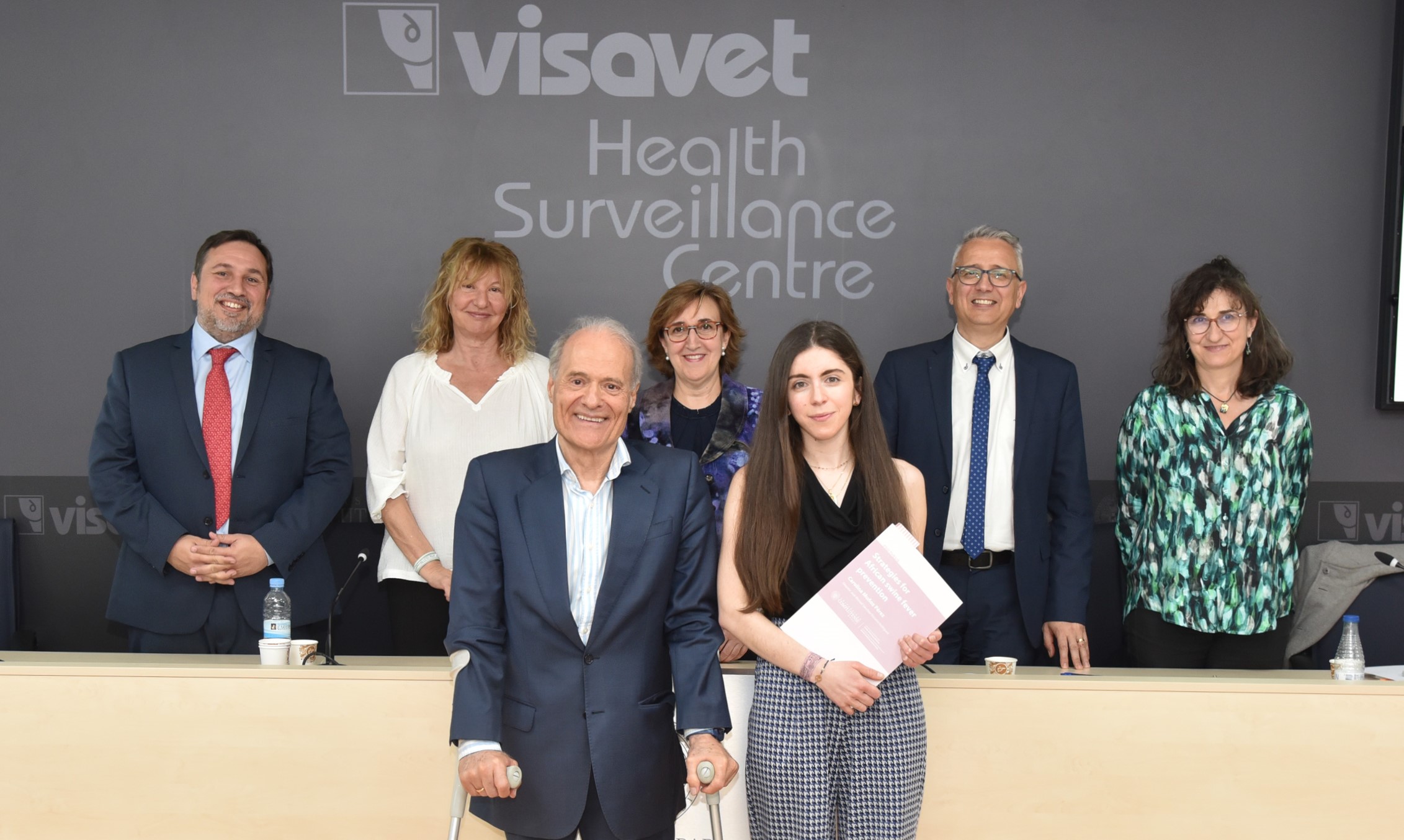
Congratulations Carolina! The SUAT team gives you the most sincere congratulations
Will we get a vaccine for the most lethal disease in the pork sector?
Interview with José Manuel Sánchez-Vizcaíno for AgriNews TV.
Carolina Muñoz Pérez PhD Thesis
On Thursday, March 21, 2024, Carolina Muñoz will defend her doctoral thesis titled "Strategies for African Swine Fever prevention" directed by Professor José Manuel Sánchez-Vizcaíno. The event will take place at 11:30 a.m. in the Conference Room of the VISAVET Health Surveillance Centre at the Complutense University of Madrid.

Abstract:
African swine fever (ASF) is a devastating infectious disease of swine, which is listed as notifiable to the World Organisation for Animal Health (WOAH). In the last few years, the disease has spread worldwide. Nowadays, this pandemic spread poses the greatest threat to the global swine industry. In view of this situation, this doctoral thesis entitled: “Strategies for African swine fever prevention”, aims to develop epidemiological knowledge regarding the most important risk factors for ASF entry into an ASF-free area, in particular, the natural movement of wild boar populations and the international trade of pigs and pork and pork products.
Application of machine learning with large-scale data for an effective vaccination against classical swine fever for wild boar in Japan
We have published a new research article in the journal Scientific Reports.
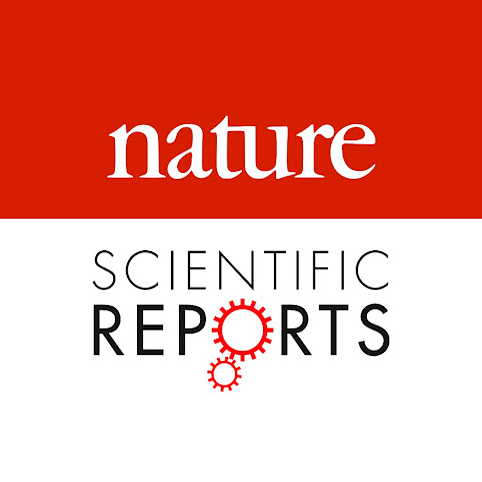 Abstract:
Abstract:
Classical swine fever has been spreading across the country since its re-emergence in Japan in 2018. Gifu Prefecture has been working diligently to control the disease through the oral vaccine dissemination targeting wild boars. Although vaccines were sprayed at 14,000 locations between 2019 and 2020, vaccine ingestion by wild boars was only confirmed at 30% of the locations. Here, we predicted the vaccine ingestion rate at each point by Random Forest modeling based on vaccine dissemination data and created prediction surfaces for the probability of vaccine ingestion by wild boar using spatial interpolation techniques. Consequently, the distance from the vaccination point to the water source was the most important variable, followed by elevation, season, road density, and slope. The area under the curve, model accuracy, sensitivity, and specificity for model evaluation were 0.760, 0.678, 0.661, and 0.685, respectively. Areas with high probability of wild boar vaccination were predicted in northern, eastern, and western part of Gifu. Leave-One-Out Cross Validation results showed that Kriging approach was more accurate than the Inverse distance weighting method. We emphasize that effective vaccination strategies based on epidemiological data are essential for disease control and that our proposed tool is also applicable for other wildlife diseases.
Ito S, Aguilar-Vega C, Bosch J, Isoda N and Sanchez-Vizcaino JM.
New insights into the pathogenesis and transmission of Brucella pinnipedialis: systemic infection in two bottlenose dolphins (Tursiops truncatus)
New research article published in Microbiology spectrum.
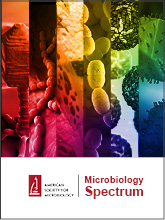 Abstract: Brucella spp. are zoonotic pathogens that can affect both terrestrial and marine mammals. Brucella ceti has been identified in various cetacean species, but only one sequence type (ST27) has been reported in humans. However, it is important to conduct surveillance studies to better understand the impact of marine Brucella species on marine mammals, a typically understudied host group. Here, we describe a systemic infection by two related strains of Brucella pinnipedialis (ST25) in a couple of live-stranded bottlenose dolphins, with more severe lesions in the younger animal. Furthermore, B. pinnipedialis was first detected in milk from a female cetacean that stranded with its offspring. Our study reveals novel insights into the epidemiology and pathological consequences of B. pinnipedialis infections in cetaceans, emphasizing the crucial importance of ongoing surveillance and accurate diagnosis to understand the impact of this pathogen on marine mammal populations.
Abstract: Brucella spp. are zoonotic pathogens that can affect both terrestrial and marine mammals. Brucella ceti has been identified in various cetacean species, but only one sequence type (ST27) has been reported in humans. However, it is important to conduct surveillance studies to better understand the impact of marine Brucella species on marine mammals, a typically understudied host group. Here, we describe a systemic infection by two related strains of Brucella pinnipedialis (ST25) in a couple of live-stranded bottlenose dolphins, with more severe lesions in the younger animal. Furthermore, B. pinnipedialis was first detected in milk from a female cetacean that stranded with its offspring. Our study reveals novel insights into the epidemiology and pathological consequences of B. pinnipedialis infections in cetaceans, emphasizing the crucial importance of ongoing surveillance and accurate diagnosis to understand the impact of this pathogen on marine mammal populations.
Vargas-Castro I, Crespo-Picazo JL, Fayos M, Jiménez-Martínez MdlÁ, Torre-Fuentes L, Álvarez J, Moura AE, Hernández M, Buendía A, Barroso-Arévalo S, García-Seco T, Pérez-Sancho M, De Miguel MJ, Andrés-Barranco S, Marco-Cabedo V, Peñin-Villahoz G, Muñoz PM, Domínguez L, García-Párraga D and Sánchez-Vizcaíno JM.



